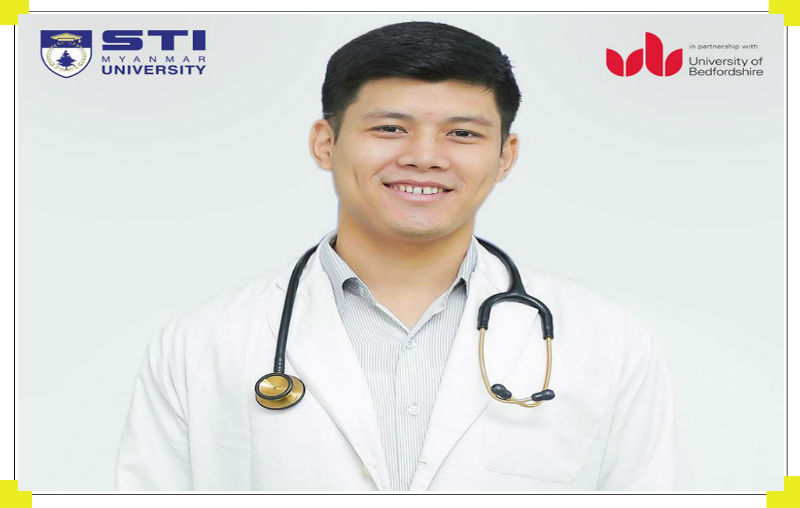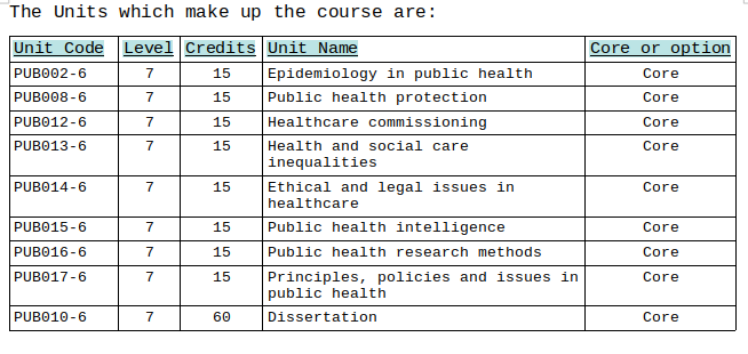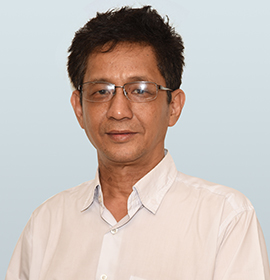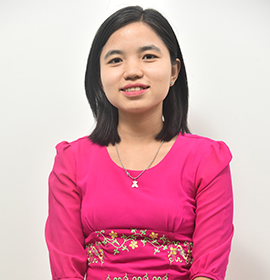MSc (Public Health)
Public Health Master Program

- 🎓 Category : FACULTY OF HEALTH SCIENCE
- 🎓 Program : Postgraduate Programs
- 👩🎓 Course Coordinator : Dr. Thein Tan
- This is a franchised Master program awarded by University of Bedfordshire (UK).
University Of Bedfordshire
About the course
Choose this course to develop a critical understanding of how the research process is applied in the study of public health, how public health policy is developed and implemented in developed and developing nations, and the potential impact of global drivers of reform on future policy. Upon completion of this course all students become eligible to apply for fellow membership of the UK Royal Society for Public Health. In addition, there are a range of career opportunities including public health analyst, public health programme manager and public health specialist. The course can also act as a platform for postgraduate research (MRes/MPhil/PhD) study in public health. The course provides you with sufficient grounding for the UK Faculty of Public Health Part I examination.
Public Health has become an increasingly significant focus of government plans worldwide, initiating developments at both national and local level within multiple health care settings. This course focuses on the applied principles of Public Health relevant to students from all around the world. It is designed to develop your practical and critical public health skills, underpinned by a sound understanding of associated theories. It is based on the principles set out in the UK Government’s White Paper on Public Health - Healthy lives, healthy people, according to which the National Health Service should improve health and prevent disease, not just provide treatment for those who are ill. The course has been developed to (i) address the core competencies from the UK Faculty of Public Health, (ii) facilitate an in-depth understanding of health issues from local, national and global perspectives, and (iii) focus on the applied elements of public health and utilise a research informed teaching curriculum.
The course curriculum utilises case-studies from different parts of the world, is aimed at both medically and non-medically qualified applicants, from Health Service and non-Health Service backgrounds, including those in primary or secondary care, nursing and professions related to medicine, health promotion, health care research, health management and anyone wishing to develop a career in public health. It has been designed to enable you to build on your existing professional knowledge and expertise in Public Health.
Method of Assessment
This is a full- or part-time course for public health, healthcare or social care professionals. It is designed to foster scholarship of practice and therefore methods have been chosen to ensure that course graduates are able to adopt evidence-based approaches to public health. Our guiding principles are that learning should have immediate professional relevance and that it should draw on the experiences and expertise of students on the course, as well as the academic staff who lead it.
Teaching, learning and assessment methods foster active learning and allow students a degree of choice, to ensure learner centeredness. The curriculum has been designed to move students from the familiar to the new, allowing students to evidence their knowledge and skills in a range of ways. This is particularly important for international students who need opportunities to adjust to the UK higher education system and develop the levels of academic literacy required to engage with the challenges of postgraduate study.
For example, the Public Health Research Methods, Epidemiology, Health Intelligence and Health Protection units all invite engagement with a wide range of data sources, including published and grey literature, and publicly available data sets. Through lectures, seminars, tutorials and group work students gain expertise in data collection, analysis and application. The Health Inequalities and Ethical & Legal Issues in Healthcare units will help you to develop your critical thinking skills. The Principles, Policies and Issues in Public Health unit provides opportunities to join in class debates and discussions, while the Healthcare Commissioning unit provides an opportunity to collaborate with fellow students to give a poster presentation.
Learning is assessed in a variety of ways throughout the course. Assessment tasks include creating posters, group presentations, as well as writing reports and briefing papers.
Entry Requirement
Standard entry requirements apply to this course.
In addition
💊Students should hold a relevant health or social care degree (grade 2:2 or higher).
💊It is also highly desirable that candidates have some experience of working within a health (preferably in public health) or social care sector.
💊A minimum IELTS score of 6.0 with 5.5 in each band or equivalent for EU and international applicants.

Course Fees
22,200,000 MMK (Course Fees may change without prior notice)














